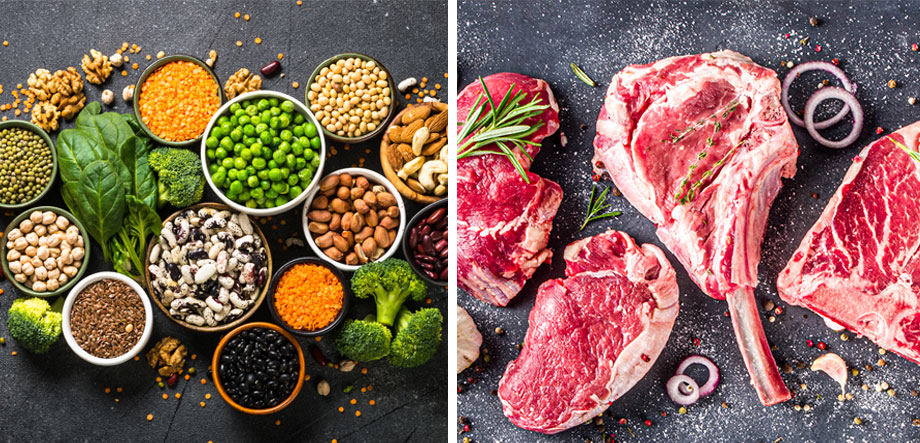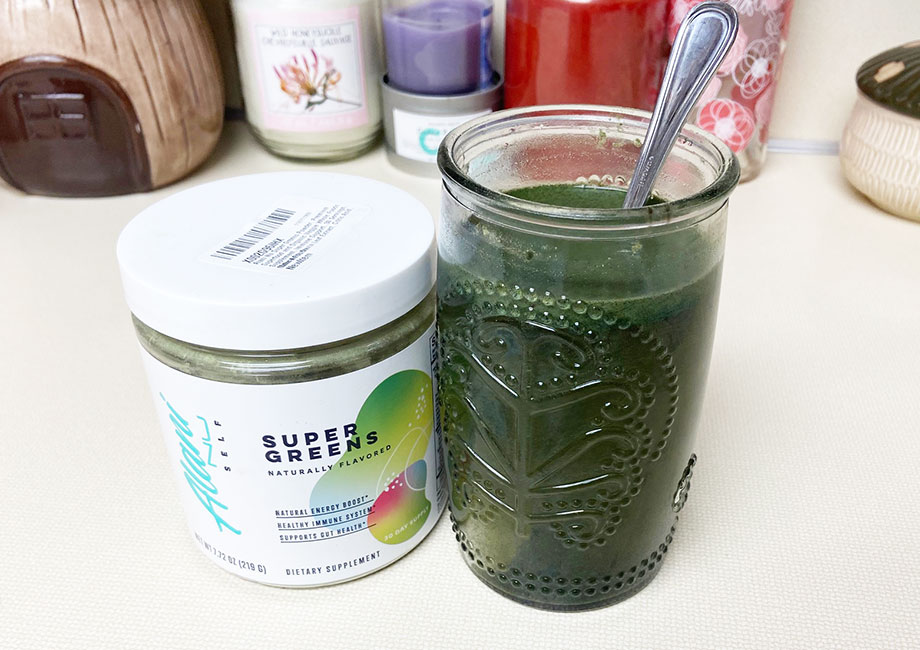When starting a fitness routine and dialing in on your nutrition, the first question on the minds of many is how to get more protein. After all, protein is essential for building muscle, making meals more balanced, and supporting the various biological functions of a healthy human body, so optimizing your protein consumption is an important consideration.
Besides the total amount of protein you’re getting in a day, you may also be wondering whether the source of this protein matters.
RELATED: Different Types of Protein
There are two main contenders for dietary protein: plant protein vs animal protein. What are the differences between these two types of protein, and is plant better than animal-based protein or vice versa? As a registered dietitian, I’ll give you the low-down on both protein types!
Medical disclaimer: This article is intended for educational and informational purposes only. It is not intended as a substitute for medical advice. For health advice, contact a licensed healthcare provider. GGR also recommends choosing a product that has been third-party tested for quality.
The Difference Between Plant Protein and Animal Protein
Plant proteins are present in beans, legumes, nuts, seeds, and whole grains. All are great options for vegan diets, people with alpha-gal syndrome, vegetarians, and flexitarians.
RELATED: Best Vegan Protein Powder
Animal proteins are present in animal foods like meat, poultry, fish, eggs, and dairy. They’re usually more concentrated sources of protein than plant-based foods, with some exceptions.
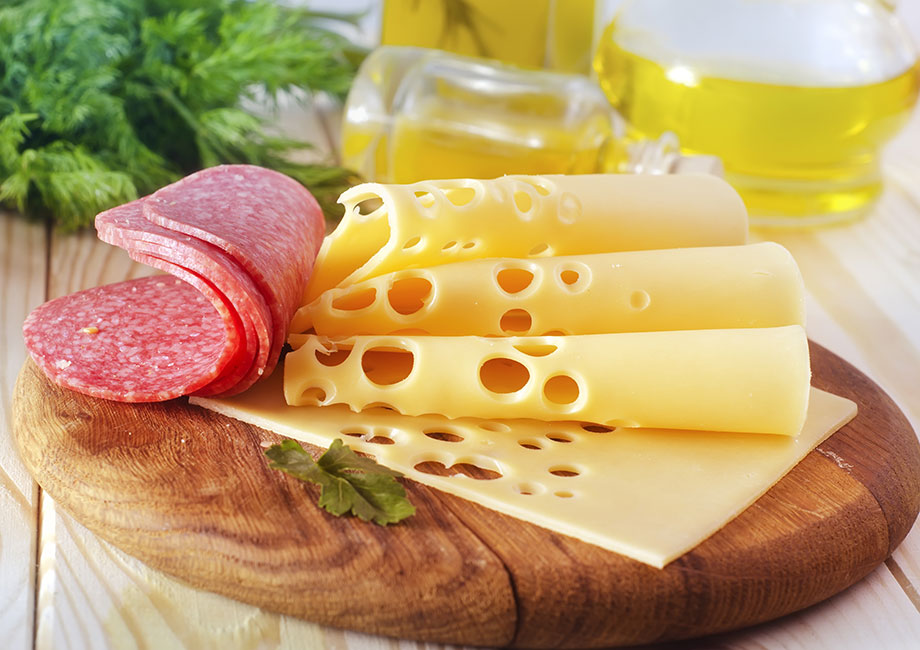
I’ll get into some of the more technical differences below.
Amino Acids
Amino acids are the “building blocks” of protein. There are 20 amino acids in proteins, nine of which are essential. You can’t produce essential amino acids yourself, so your body needs to get them from food.
Animal proteins are “complete” proteins, meaning they contain all nine essential amino acids in optimal proportions for human health. Plant proteins also contain all nine essential amino acids but in varying proportions. Some plant proteins, like soy, are complete. Others are slightly lower—but not deficient—in specific amino acids.
RELATED: Plant-Based Protein Powder Vs Whey
In light of this, some plant-based protein powders contain blends of different proteins, such as peas and brown rice, to better match the amino acid profile of complete proteins. According to the Academy of Nutrition and Dietetics1, combining plant proteins at every meal is unnecessary for most people. You’ll get enough essential amino acids if you’re eating enough total protein and calories.
It could, however, be beneficial for building muscle since some plant proteins, like hemp, are lower in leucine, a branched-chain amino acid needed to stimulate muscle protein synthesis.
RELATED: Best Protein Powder For Muscle Gain
Digestibility and Absorption
Scientists use the Digestible Indispensable Amino Acid Score2 (DIAAS) to identify high-quality proteins based on how efficiently they’re digested.
Typically, animal proteins have higher DIAAS scores, indicating higher protein quality. As an illustration, scores for common protein powders include:
- Whey protein isolate: 1.09 (Excellent)
- Whey protein concentrate: 0.97 (Good)
- Soy protein isolate: 0.91 (Good)
- Pea protein concentrate: 0.82 (Good)
- Rice protein concentrate: 0.37 (No claim)
While DIAAS is an interesting concept, it’s likely most helpful when building muscle or in cases of anabolic resistance, as seen in older adults and some cancer patients. Healthy people focused on general health benefits don’t need to stress about the DIAAS scores of their foods when eating balanced diets.
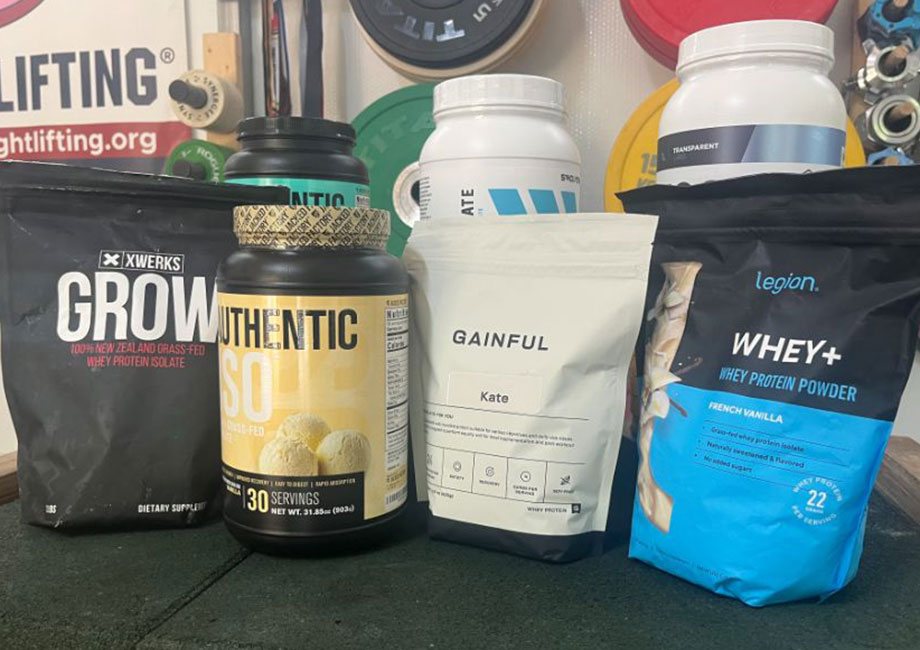
Additionally, experts suggest that DIAAS has significant limitations when assessing the quality of plant-based proteins. Some have suggested you avoid using it altogether in the context of a plant-based diet3.
Other Nutrients
Animal protein foods like beef, eggs, and dairy products are higher in saturated fat, cholesterol, vitamin D, and vitamin B12.
Whole plant foods, on the other hand, are higher in carbohydrates, gut-friendly dietary fiber, and antioxidants.
Plant Protein vs Animal Protein: Which Is Better?
People interested in increasing their protein intake tend to do it to help build muscle or lose weight. Is one type of protein better for either of these situations?
Plant Protein vs Animal Protein for Muscle Building
To date, most of the studies on plant protein for muscle growth have used soy protein.
According to a 2021 meta-analysis published in Nutrients4, plant, and animal protein equally increase total lean body mass and strength. An exception was for younger adults, who experienced greater improvements in lean mass percentage when consuming animal protein.
In support of these findings, an additional 2021 randomized controlled trial5 separated young untrained men into two groups: one that ate a plant-based whole foods diet with soy protein supplementation and one that ate an omnivorous whole food diet plus whey protein. Both diets provided 1.6 grams of protein per kilogram of body weight per day. After three months of resistance training, muscle mass and strength improvements were equal.
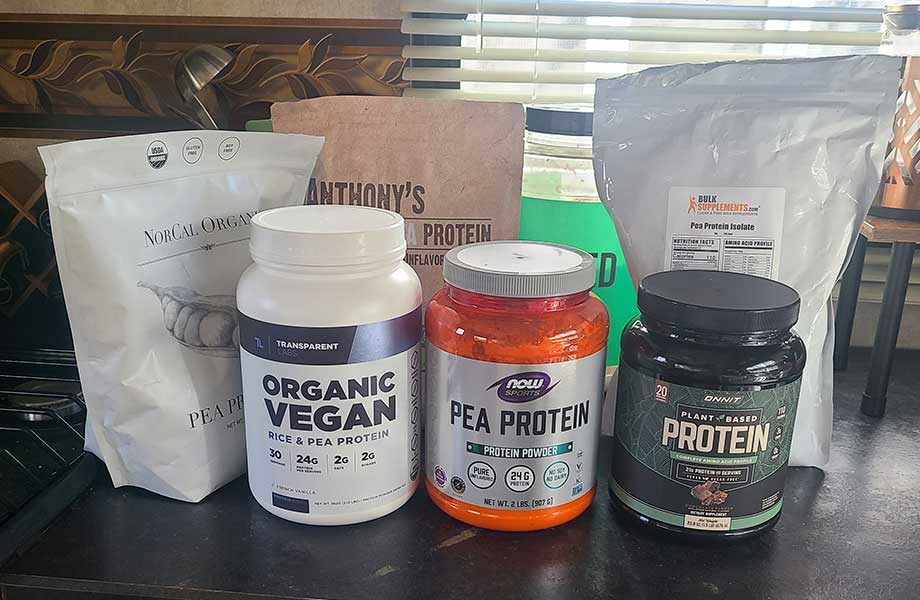
Studies assessing the muscle-building benefits of other plant proteins like peas or rice are limited, making comparisons to animal proteins more difficult. However, plant proteins that provide adequate amounts of leucine, like pea protein, are likely as effective as whey for stimulating muscle protein synthesis6.
RELATED: Pea Protein Benefits: Explained By An RD
To summarize, animal protein and high-quality plant proteins rich in leucine offer similar benefits for building muscle.
Plant Protein vs Animal Protein for Weight Loss
High-protein diets providing a daily total of 1.2 to 1.6 grams per kilogram of body weight are helpful for weight management7 thanks to their satiating and metabolism-raising effects.
When using protein supplements like protein powders, bars, and shakes, choosing plant versus animal doesn’t appear to make much difference. For example, Shakes made with soy protein are equally effective as animal protein shakes for weight loss8 when in a calorie deficit.

In terms of whole-food diets, however, pescatarian and plant-based diets may be more effective. According to the International Lipid Expert Panel9 (ILEP), diets higher in red meat and poultry are associated with weight gain. Protein from fish, dairy, and plant-based foods are not. ILEP also advises that plant proteins are more protective than animal proteins against obesity.
This could be related to the fact that people eating a lot of red meat tend not to eat many fruits or vegetables, leading them to eat more calories overall. It could also be due to the higher fiber content of plant-based foods, consistent with the known benefits of vegetarian diets for weight loss10. In any case, it highlights the importance of nutrient-dense foods and being in a calorie deficit for weight loss.
RELATED: Best Protein Powder for Weight Loss
Plant Protein Vs Animal Protein for General Health
Both plant and animal proteins can be an integral part of a well-balanced diet; however, recent studies have shown11 that substituting plant protein for animal protein may put you at lower risk of cardiovascular disease and type 2 diabetes. These studies are considered “limited-suggestive,” meaning there have been positive results, but the findings aren’t conclusive.
RELATED: High-Protein Diet Side Effects
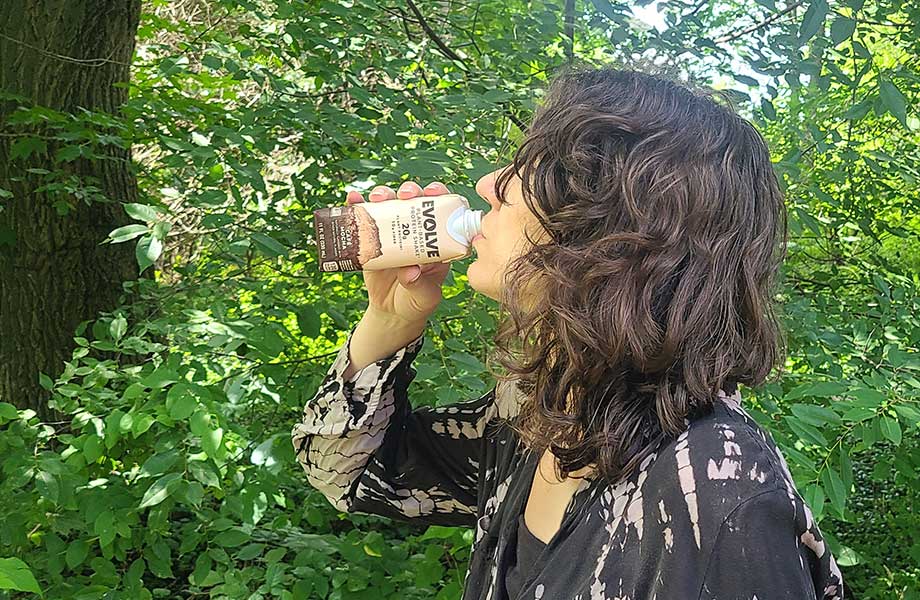
Another positive for plant protein over animal-based protein is its sustainability. Animal farming produces higher levels of greenhouse gas emissions12. So, plant protein can be less taxing on the environment (and less expensive).
Sources of Animal Protein
Some of the most popular sources of animal protein include:
- Whey protein: 20-25 g per serving
- Casein: 20-25 g per serving
- Red meat: 22 g in 3 oz
- Poultry: 26 g in 3 oz
- Fish: 20 g in 3 oz
- Milk: 8 g in 1 cup
- Cheese: 7 g in 1 oz
- Eggs: 6 g per egg
Sources of Plant Protein
Don’t limit yourself to just beans! There are plenty of plant-based foods for increasing your protein intake, including:
- Plant-based protein powders: 18-23 g per serving
- Seitan: 15-23 g in 3 oz
- Tempeh: 18 g per ½ cup
- Firm tofu: 23 g per ½ block
- Beans and lentils: 7-9 g per ½ cup
- Quinoa: 8 g in 1 cup
- Pasta: 6-8 g in 1 cup
- Nuts and seeds: 5-7 g in 1 oz
- Broccoli: 4 g in 1 cup
- Chickpeas: 2.4 g per 1 tbsp
Plant Protein vs Animal Protein: Final Thoughts
The choice between plant and animal proteins depends on your personal preferences or dietary needs. That said, if you prefer getting your protein from animal products, try incorporating some plant-based protein sources as well to support your long-term health.
When considering plant and animal proteins, keep the following takeaways in mind:
- Both are effective for building muscle and meeting your daily protein needs.
- Animal proteins are more digestible, but the relevance of this for overall health and muscle-building isn’t clear-cut.
- Choosing high-leucine plant proteins like soy and pea can help you reap the most plant-based protein powder benefits for building muscle.
- Combining plant proteins at every meal isn’t necessary for general health benefits.
- Incorporating whole-food plant proteins into an omnivorous diet may be more effective for weight loss than animal proteins alone.
To get the most bang for your buck, check out our top animal and plant-based picks for the best protein powder!
These statements have not been evaluated by the Food and Drug Administration. This product is not intended to diagnose, treat, cure, or prevent any diseases.
Plant Protein vs Animal Protein: FAQs
Is plant protein better than animal protein?
It’s hard to say if one is better because while animal protein is the more popular option, plant protein is just as important as part of a healthy diet. Plant and animal protein combined can help you meet your daily protein needs, build muscle, and lose weight.
If you’re unable to eat animal-based protein for dietary reasons or personal preference, rest assured that you can still meet your daily protein needs.
What are the disadvantages of plant protein?
Plant proteins may be less bioavailable than animal proteins, but cooking and processing significantly increase their digestibility. Some whole plant foods, like beans, are higher in carbohydrates, so people on very high-protein diets may need concentrated sources of protein like tempeh, seitan, tofu, and plant-based protein powders.
RELATED: High-Protein Vegetables
Can you build muscle with plant protein?
Short answer: Yes! Plant proteins vary in their proportions of essential amino acids, so you may want to choose protein powders made from complete proteins (like soy) or a blend of complementary plant proteins to optimize your muscle-building.
Can you get all 9 essential amino acids from plants?
Every plant-based source of protein contains all nine essential amino acids, so there’s no risk of essential amino acid deficiency as long as you’re getting enough protein and calories.
References
- Melina V, Craig W, Levin S. Position of the Academy of Nutrition and Dietetics: Vegetarian Diets. J Acad Nutr Diet. 2016;116(12):1970-1980. doi:10.1016/j.jand.2016.09.025.
- Wolfe RR, Rutherfurd SM, Kim IY, Moughan PJ. Protein quality as determined by the Digestible Indispensable Amino Acid Score: evaluation of factors underlying the calculation. Nutr Rev. 2016 Sep;74(9):584-99. doi: 10.1093/nutrit/nuw022. Epub 2016 Jul 24. PMID: 27452871; PMCID: PMC6322793.
- Craddock JC, Genoni A, Strutt EF, Goldman DM. Limitations with the Digestible Indispensable Amino Acid Score (DIAAS) with Special Attention to Plant-Based Diets: a Review. Curr Nutr Rep. 2021;10(1):93-98. doi:10.1007/s13668-020-00348-8
- Lim MT, Pan BJ, Toh DWK, Sutanto CN, Kim JE. Animal Protein versus Plant Protein in Supporting Lean Mass and Muscle Strength: A Systematic Review and Meta-Analysis of Randomized Controlled Trials. Nutrients. 2021;13(2):661. Published 2021 Feb 18. doi:10.3390/nu13020661
- Hevia-Larraín V, Gualano B, Longobardi I, et al. High-Protein Plant-Based Diet Versus a Protein-Matched Omnivorous Diet to Support Resistance Training Adaptations: A Comparison Between Habitual Vegans and Omnivores. Sports Med. 2021;51(6):1317-1330. doi:10.1007/s40279-021-01434-9.
- McKendry, J., Lowisz, C. V., Nanthakumar, A., MacDonald, M., Lim, C., Currier, B. S., & Phillips, S. M. The effects of whey, pea, and collagen protein supplementation beyond the recommended dietary allowance on integrated myofibrillar protein synthetic rates in older males: A randomized controlled trial. The American Journal of Clinical Nutrition. 2024; https://doi.org/10.1016/j.ajcnut.2024.05.009
- Leidy HJ, Clifton PM, Astrup A, et al. The role of protein in weight loss and maintenance. Am J Clin Nutr. 2015;101(6):1320S-1329S. doi:10.3945/ajcn.114.084038
- Beavers KM, Gordon MM, Easter L, et al. Effect of protein source during weight loss on body composition, cardiometabolic risk and physical performance in abdominally obese, older adults: a pilot feeding study. J Nutr Health Aging. 2015;19(1):87-95. doi:10.1007/s12603-015-0438-7
- Zhubi-Bakija F, Bajraktari G, Bytyçi I, et al. The impact of type of dietary protein, animal versus vegetable, in modifying cardiometabolic risk factors: A position paper from the International Lipid Expert Panel (ILEP). Clin Nutr. 2021;40(1):255-276. doi:10.1016/j.clnu.2020.05.017
- Huang RY, Huang CC, Hu FB, Chavarro JE. Vegetarian Diets and Weight Reduction: a Meta-Analysis of Randomized Controlled Trials. J Gen Intern Med. 2016;31(1):109-116. doi:10.1007/s11606-015-3390-7.
- Lamberg-Allardt C, Bärebring L, Arnesen EK, Nwaru BI, Thorisdottir B, Ramel A, Söderlund F, Dierkes J, Åkesson A. Animal versus plant-based protein and risk of cardiovascular disease and type 2 diabetes: a systematic review of randomized controlled trials and prospective cohort studies. Food Nutr Res. 2023 Mar 28;67. doi: 10.29219/fnr.v67.9003. PMID: 37050925; PMCID: PMC10084508.
- Lim MT, Pan BJ, Toh DWK, Sutanto CN, Kim JE. Animal Protein versus Plant Protein in Supporting Lean Mass and Muscle Strength: A Systematic Review and Meta-Analysis of Randomized Controlled Trials. Nutrients. 2021 Feb 18;13(2):661. doi: 10.3390/nu13020661. PMID: 33670701; PMCID: PMC7926405.


